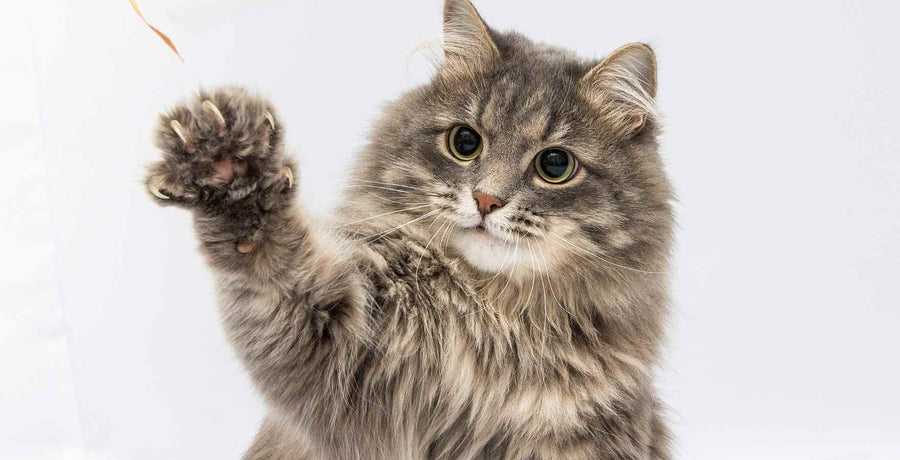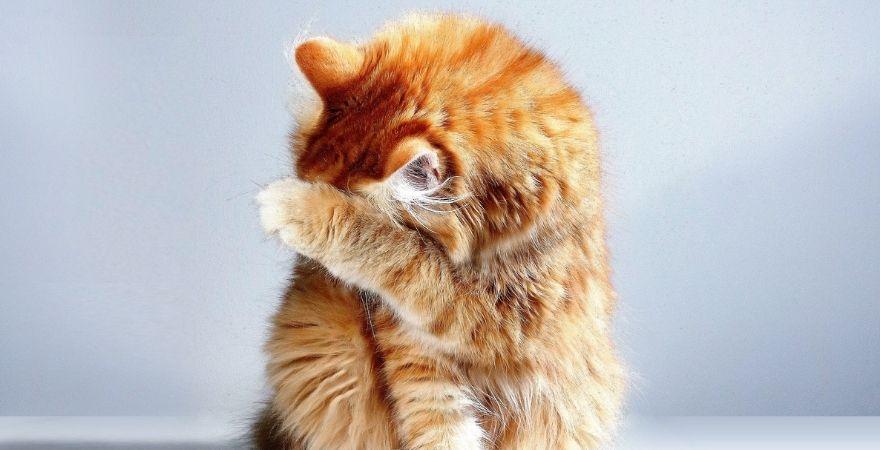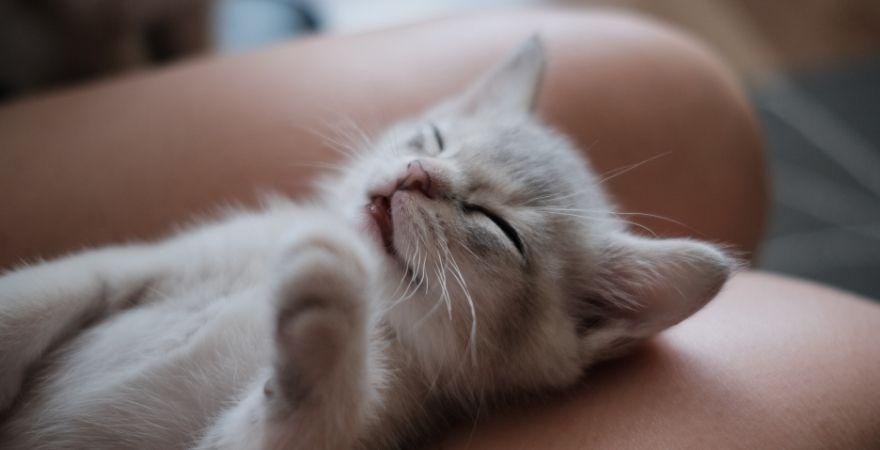 CKD stands for chronic kidney disease. It’s also known as chronic renal disease or simply as renal disease.
CKD stands for chronic kidney disease. It’s also known as chronic renal disease or simply as renal disease.
If your vet tells you your cat has CKD it can be quite scary! On top of the difficult emotions of learning a beloved pet has a health concern, there’s a lot of information to absorb and decisions to make.
The first thing you should do is let go of any guilt you might be feeling! CKD is extremely common, especially in older cats. In fact, one in ten cats over the age of ten will develop CKD and as they get older, the chances will only increase.
It’s also very hard to detect in the early stages. It’s one of those diseases that creeps on slowly. So in most cases, a cat deals with CKD for quite some time before a diagnosis is made.
So, let’s look at CKD piece by piece and run through what it means for your cat.
WHAT EXACTLY DOES CHRONIC MEAN?
With a disease like this, it can be useful to break down the words one by one. So let’s look at this word chronic.
When you boil it down to the basics, chronic simply means lasting and ongoing. It is a condition that needs to be treated for the long haul rather than simply cured so that you can move on.
This is actually good news and bad news. On the down side, yes it won’t be going away. But on the up side, symptoms can be managed effectively if you treat it like a marathon rather than a race.
LET’S LOOK AT KIDNEY FUNCTION
Then we have the kidneys part of the equation. We all know they’re pretty important to bodily function but what exactly do they do?
The kidneys are a complex organ.
They regulate fluid and filter the body, preventing the build up of urea and other toxic byproducts of body function. They also are important for red blood cell production and controlling blood pressure.
All of the above is put under strain when your poor cat’s kidneys become damaged. As you can imagine, this has a kind of domino effect on overall health.
SO WHAT DOES ALL THIS MEAN FOR YOUR CAT?

Let’s recap. We know this is a chronic disease, meaning it’s a long term disease. We also know that it affects many functions in the body.
If you boil all this down to brass tacks, what it means is that, with the help of your vet, you and your cat need to find a way to manage CKD.
How is that done?
Diet
 It’s important to consult with your vet, but you’ll likely need to think about putting your cat on a protein reduced diet.
It’s important to consult with your vet, but you’ll likely need to think about putting your cat on a protein reduced diet.
This will lower the work the kidneys have to do. It’s important to realize though that protein is really important! It’ll require careful management with your vet to get the levels just so.
Upping your fluff ball’s Omega 3 fatty acids is also not a bad idea. While research on its efficacy in felines is at an early stage, we do know it works well in humans.
The bonus for your cat is that the best source of Omega 3 is delicious fish!
Alongside the suggestions above, giving your cat kidney supporting nutrients is an amazing way to ensure the kidneys stay strong and healthy. Make sure to look for supplements that contains scientifically backed active ingredients - so you know what you’re giving you kitty is doing good.
One such example of this is the Scruffy Paws Kidney Vitalize Chews, formulated by experts, containing scientifically backed ingredients that are proven to support good kidney health. Check it out here
Water
 Cats with CKD may stop drinking. This is something which needs to be dealt with urgently as fluid is a vital biological requirement.
Cats with CKD may stop drinking. This is something which needs to be dealt with urgently as fluid is a vital biological requirement.
If your cat struggles to drink water, trying stirring a bit of water into their regular food. You may also need to get creative, seeing if they are more likely to drink from the faucet or somewhere else around the house.
Medication

Various medication options are available. Bear in mind though, that finding the right combination may require quite a bit of experimentation.
Your vet may prescribe medication to help deal with fluid build up, as well as to deal with blood pressure and nutrition deficit issues.
And again, don’t worry if it takes a while to get the right medications. This is entirely normal.
Supplementation
You may also wish to consider putting your cat on vet-approved omega 3 essential fatty acid supplements. Although research with Omega 3 and cats is still at an early stage, we do know they assist humans in dealing with kidney disease.
Not only that take a look at the Scruffy Paws Kidney Vitalize chews, the active ingredients inside them (Astragalus extract & Rhemannia extract) have been scientifically backed to help reduce proteinuria fight inflammation and support kidney health. (Click here to hear to the scientific backing of the product page)
And thats not all, take a look at what some of our customers have said about the Kidney Vitalize Chews:
“I am so happy to have found your Kidney-Vitalize Chews. My 15 year old cat Cagney was losing weight and had his blood tested. It showed he was in the beginning stages of kidney disease. My vet suggested changing his diet to a prescription kidney friendly one. I had also seen your product advertised on social media. I ordered a jar and Cagney loved it and it seems to have given him his appetite back.”
- Nancy H
“My cat bootsie seems to be doing better already! I think she has put on a little weight, more energy and hasnt had any problems urinating. I break up a chew and mix it in with her morning and afternoon feeding. Thank you so much for your product!. And Bootsie thanks you too!"
- Rita A
"I brought my Nicholas 18 years old to the vet today to have his creatine levels checked and they seem to have improved. I've had him on the chews for around a month. I'm totally thrilled with them"
- Anita S
We definitely suggest taking a look at the chews (click the button below to learn more!)
CKD sounds scary, and don’t get me wrong, it’s not a disease you can take lightly. It has a big effect on health and needs to be managed. There is good news though. We know a lot about the disease and your vet will be able to give you some solid treatment options to help your buddy feel so much better.
Just be patient, listen to your instinct and set up a good line of communication both with your vet
and your cat!







